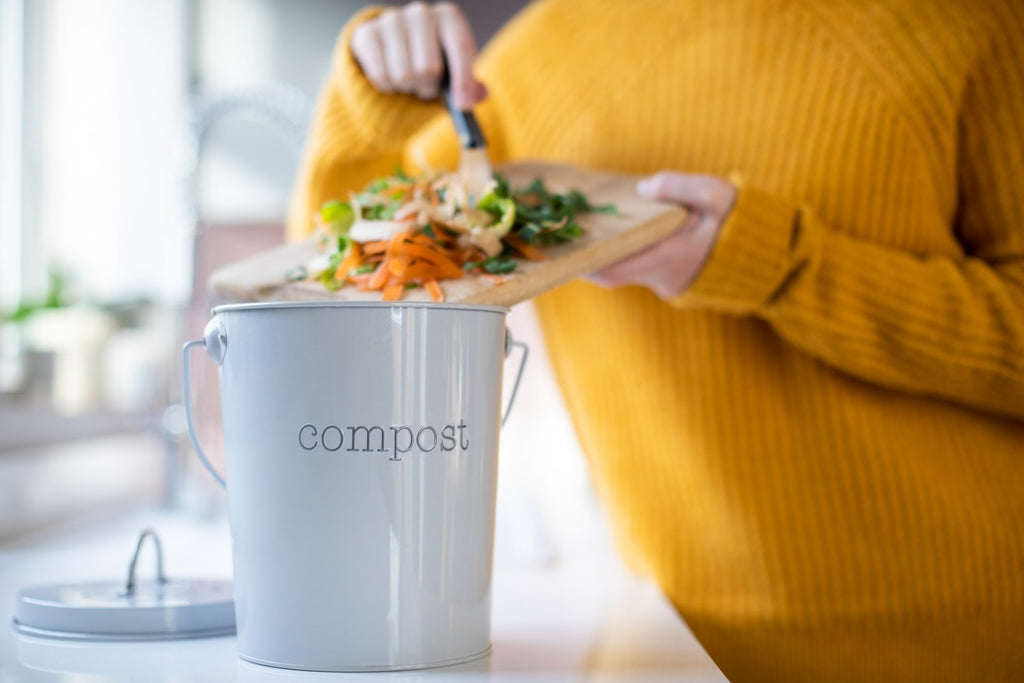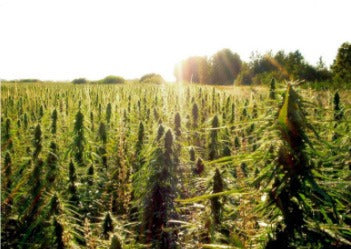10 Easy Ways to Reduce Waste

Climate change is an existential crisis that threatens the future of humanity. We must make more sustainable decisions to preserve Earth for generations to come. According to the Environmental Protection Agency (EPA), the United States produces 292.4 million tons of trash annually. That breaks down to about 4.9 pounds per person per day. Here are ten ways to reduce waste and cut your carbon footprint.
1. Recycle
Recycling is one of the easiest ways to do your part. Many local communities have recycling programs. Depending on the area, obtaining a recycling bin might require a one-time fee or be included in the region’s budget. Be sure to inquire with your local Department of Energy and Environmental Protection (DEEP).
Recyclable items include:
- Certain Plastic Bottles & Containers
- Aluminum Cans
- Paper
- Flattened Cardboard
- Glass Bottles & Containers
Clean all the items thoroughly before placing them in your bin. Also, check with your local DEEP to see which types of plastics they accept.
2. Upgrade Your Plastic Food Storage
According to National Geographic, 91% of plastic on our planet hasn’t been recycled. It can take some plastics up to 450 years to decompose. Manufacturers are mass-producing plastic at rates so great that decomposition can’t keep up!
One excellent way to wean off your plastic habit is to change up your plastic food storage containers. Plastic molecules leach into your food and disrupt your body’s homeostasis.
Once your current plastic containers wear out, invest in heavy-duty glass containers. Glass isn’t porous like plastic. It doesn’t hold moisture that leaves food susceptible to bacterial growth. Nor does it warp in the microwave or in the dishwasher, or hold stains as plastic does.
3. Stop Using Plastic Bags
Plastic bags are convenient for humans but inconvenient for the environment. We use 100 billion plastic bags each year!
Millions of plastic bags litter the ocean. They kill at least 300,000 marine animals annually.
Many states are starting to ban the use of plastic bags in grocery stores, while others are charging for them. Consider opting for reusable canvas or insulated bags instead.
Green shopping bags will cut down on plastic waste. Plus, they’re far sturdier than cheap plastic bags!
4. Compost
Gardening is an excellent way to nourish your family and help give back to the environment. Instead of using synthetic growing chemicals, go organic by composting your scraps.
Food scraps are excellent fiber for soil microbes. They’ll then give the soil nutrients conducive to a healthy harvest.
Try to get a diverse amount of scraps in your compost to create a more robust microbial ecosystem in the soil. Plus, a variety of fruits and vegetables gives your body a spectrum of different antioxidants. It’s a win-win for the earth and you!
5. Ditch Bottled Water
Bottled water is an easy way to take your water on-the-go. However, plastic leaches into water. Many plastics used to make water bottles have been shown to disrupt endocrine glands.
Now, the Flint water crisis has proven that sometimes public water can be a safety concern. That can cause one to rely on bottled water. Reverse osmosis or carbon-purified water filters are available that produce water of equal quality to bottled water.
Granted, many of these filtration systems can run up to $300 or more. However, the average person spends over $100 per year on bottled water. Water filtration systems are a long-term investment that will pay back financially, environmentally, and health-wise.
6. Support Local
Now more than ever, it is essential to support local businesses. While Amazon is handy, our reliance on delivery services has increased pollution.
Also, their packaging creates a lot of unnecessary waste. Shopping local supports your community’s economy, cuts down on carbon emissions, and requires less packaging.
Supporting local businesses also means farms. Local organic farms improve the regional ecosystem. They reduce water runoff and purify the air.
7. Donate
Don’t throw away clothes that don’t fit anymore or food items you decide you don’t want. Donate them instead.
When donating non-perishables, some shelters accept food up to a year past the “best by” date. The requirements differ by item. Be sure to contact your local kitchen to inquire.
Donations don’t have to be solely clothes and food. Halfway homes could use pots and pans, animal shelters need blankets and towels, and abuse shelters desperately need phones.
8. Go Paperless
Approximately 44% of junk mail is never opened. You can classify the paper bills you have on auto-pay as junk mail.
Almost every bill has a paperless option. These portals also allow you to print any statement you need.
Also, see which junk mail services continue to send you mail. Contact them and request to be removed from their mailing list.
9. Cloth Diapers
Climate change is going to be a very significant issue for younger generations. Start them off with a better chance by switching plastic diapers for cloth. It takes up to 500 years for disposable diapers to decompose.
Plus, cloth diapers have more leeway around your baby’s waist. You won’t need to switch sizes every few months and potentially waste all the too-small diapers you bought in bulk when your baby has a growth spurt!
10. Make Your Own Personal Care Products
A majority of our waste comes from our health and beauty routines. We are buying multiple products for each part of our regimen.
They come in tubes, bottles, and containers that end up in landfills. Not to mention, these products contain many synthetic ingredients that might do the body more harm than good.
Instead, make your own beauty products:
- Toners (Witch Hazel, Aloe Vera Gel, Green Tea, Apple Cider Vinegar)
- Moisturizers (Coconut Oil, Avocado Oil, Jojoba Seed Oil, Sweet Almond Oil)
- Hydrators (Distilled Water, Rose Water, Hibiscus Tea)
- Exfoliators (Coffee Grounds, Walnut Shells, Activated Charcoal)
Many of these are foundations (pun intended) for our beauty needs. Then you can add essential oils or Joy Organics’ Organic CBD Tinctures to the base. These natural products will help bring homeostasis back to a plastic-disrupted system.
Make sure you preserve your DIY beauty mixes in amber glass bottles. They will preserve the shelf-life and potency of your concoctions by blocking harmful light. Who knew being sustainable could be so fun?

Newsletter signup
Join the Joy Organics Family
Sign up and get updates on new products, as well as special coupons and discounts.
testimonials
What Our Clients Say
“This is a company that truly cares about its customers and providing the best CBD products currently available on the market.”










Join In On The Conversation
Your email address will not be published. Required fields are marked *
Comments will be approved before showing up.